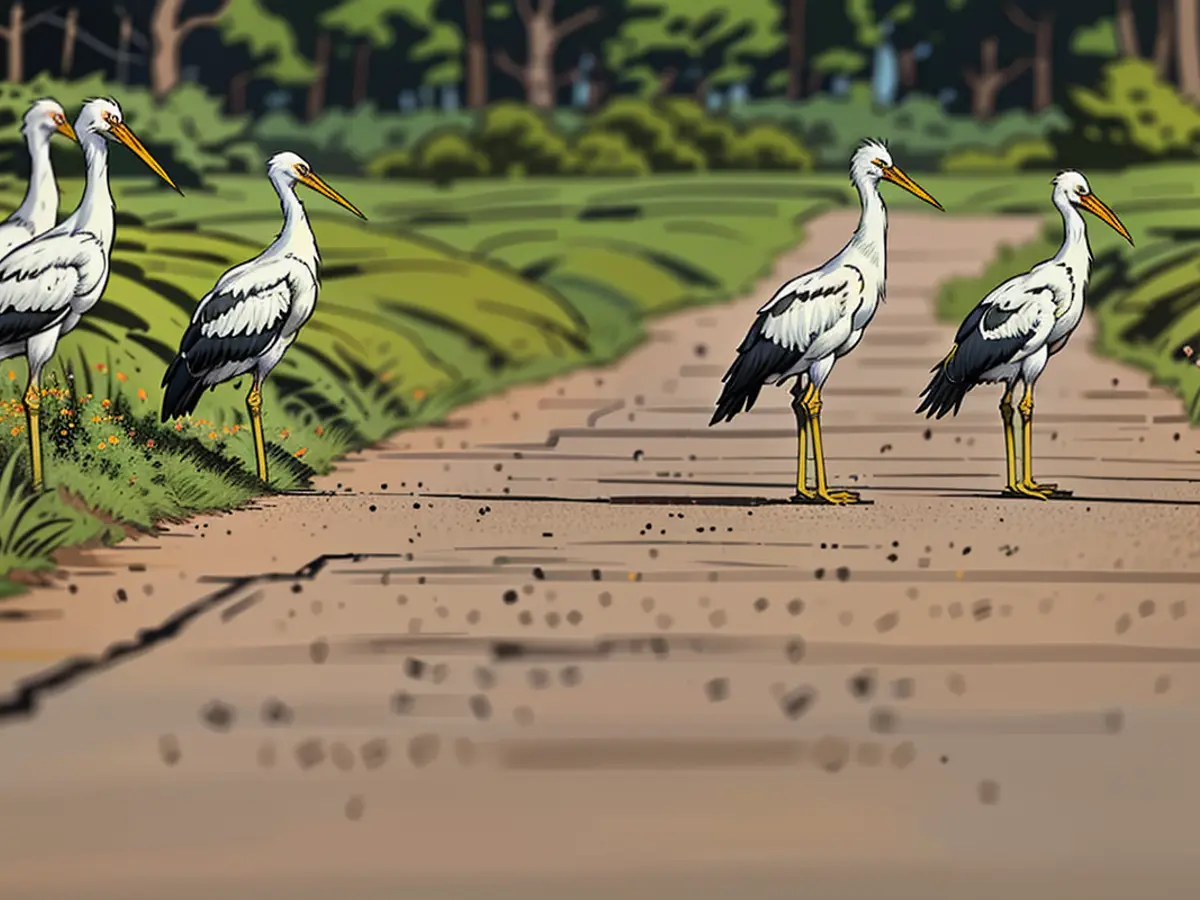Villagers face issue with invasive stork populace.
A small locale near Lake Constance is experiencing problems with an excessive stork population. There's approximately one stork for every three residents living in Hohenfels. The mayor, Florian Zindeler, is voicing concerns about this situation and is pushing for a population cap.
The birds are causing quite a ruckus with their droppings and voracious appetite, devouring anything they can find. According to Zindeler, there are around 100 storks residing in the district of Hohenfels. The number of these protected birds keeps increasing, with more and more nests being constructed, as reported by the CDU politician.
Wondering about the future, the mayor remarks that in the long run, one might refer to this as an infestation. He has already written an open letter to the state of Baden-Württemberg and various members of the state and federal parliaments, requesting that the ministry develop a comprehensive plan to handle the situation of protected species in highly affected cities and communities in the future.
The Stork Community in Hohenfels
The exact number of storks in Hohenfels is unknown to the mayor due to its rural nature. However, the birds seem to have excellent communication between themselves. The local inhabitants realize that the storks thrive whenever farmers cultivate their fields.
On a morning in late August, more than 130 storks were spotted on a plot in the district of Mindersdorf. If this number is extrapolated to the population, one stork per three residents is present. The mayor cannot provide an exact number, but he acknowledges that this is a significant number.
Stabilizing the population of protected animals is essential to ensure harmony between humans and storks. An acceptable number of nests and animals, as suggested by the environmental ministry, could be a possible solution. "I can't forecast a response to this," says the mayor.
The Appeal of Hohenfels
The mayor is unsure as to why storks are drawn to Hohenfels. With its attractive natural landscape and reed fields teeming with small animals, the area presents an ideal habitat for stork colonies. These protected birds find optimal conditions to raise their young families in Hohenfels.
The community's stork liaison officer, Josef Martin, has no issue with the number of storks. He has never had the misfortune of having stork droppings on his terrace. The problem arises only during nesting season. Fortunately, the nests are not situated near any terraces.
The small village of Mindersdorf is peaceful, with a church-like quietness. The sound of storks clattering is even pleasant in this tranquil setting. "That's nature," says Martin. The church bell rings every quarter hour, which is also normal. "One just has to adjust a bit."
Venturing to accept the presence of nests in gardens is possible. Storks pose no threat to humans and can be deterred before they build nests by removing branches. "That's perfectly justified," asserts the mayor.
The young storks have already left the village, migrating southward. Only the mature birds who guard their nests remain, temporarily. They are set to leave for the south shortly as well. "Then there's another half year of serenity," says Zindeler. The number of returnees in 2025 will be determined in the spring.
The mayor expresses concerns about the long-term impact of the stork population, suggesting that it could potentially lead to an infestation, requiring a comprehensive plan from the environmental ministry to protect both the environment and the community. Recognizing the importance of maintaining harmony between humans and storks, the mayor proposes a limit on the number of nests and storks to stabilize the population, ensuring the protection of the environment.






